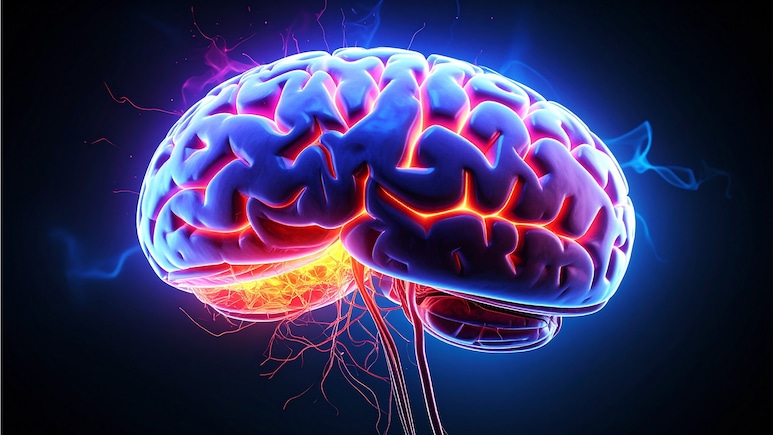
It's no secret that alcohol affects your brains even when consumed in moderation. Drinking alcohol, even in small amounts, can have both short-term and long-term effects on your brain and overall health. While many people view moderate drinking as relatively harmless, research has shown that alcohol can impair brain function and structure over time. According to the World Health Organisation, when it comes to alcohol consumption, there is no safe amount that does not affect health. One of the primary ways alcohol impacts the brain is by altering neurotransmitter levels, particularly gamma-aminobutyric acid (GABA) and glutamate. This can affect everything from memory and decision-making to emotional regulation.
"Moderation isn't protection - alcohol can still shrink your brain," said Dr. Alok Chopra, a cardiologist. In an Instagram post, the expert further explained the effect of alcohol on your brain. Keep reading to know the details.
The effect of alcohol on brain
1. Brain shrinkage
"Chronic alcohol use reduces overall brain volume. The frontal Lobe (decision-making) and Hippocampus (memory) are most affected. Resulting in memory issues, poor focus, and slower thinking," the expert mentioned. Research has shown that alcohol consumption is associated with a reduction in brain volume, particularly in areas responsible for memory, attention, and executive functions. This can, in the long run, increase the risk of cognitive decline and neurological diseases.
2. Neuro-inflammation
"Alcohol triggers inflammation, damaging neurons and neural pathways. It is also known to increase the risks of Neurodegenerative conditions over time," Dr. Chopra explained. Studies suggest that alcohol can directly affect the brain by activating immune cells such as microglia, triggering the release of pro-inflammatory cytokines, and causing neuro-inflammation.
3. Sleep issues
Individuals who consume alcohol experience poor sleep quality. Alcohol negatively impacts sleep quality by disrupting sleep cycles, suppressing REM (Rapid Eye Movement) sleep, and causing more frequent awakenings. "Alcohol alters sleep cycles, reducing REM and deep sleep. Poor sleep further affects memory, mood, and the brain repair processes," Dr. Chopra added.
4. Cognitive decline
Moderate alcohol consumption can impair various cognitive functions, such as attention, memory, and problem-solving skills. Studies indicate that even modest amounts of alcohol can lead to decreased cognitive flexibility. "Alcohol impairs working memory, attention span, and executive function. Long-term use may contribute to alcohol-related dementia," he mentioned.
5. Emotional and behavioural changes
Alcohol can affect your emotional well-being. It is known to cause anxiety, depression, and mood swings over time. Chronic alcohol use can exacerbate mental health conditions and impair emotional well-being. "It increases anxiety, depression, and mood swings and reduces impulse control and heightens risk-taking behavior," Dr. Chopra added.
"Protecting your heart means protecting your brain. Alcohol quietly sabotages both," Dr. Alok Chopra concluded.
In summary, while alcohol might seem socially acceptable in moderate amounts, its effects on brain are far from benign. The long-term consequences of even moderate consumption can hinder cognitive abilities, memory formation, and emotional stability, posing a risk to overall health and wellness. It's important to consider these risks when deciding to consume alcohol, even moderately.
Disclaimer: This content including advice provides generic information only. It is in no way a substitute for a qualified medical opinion. Always consult a specialist or your own doctor for more information. NDTV does not claim responsibility for this information.
Track Latest News Live on NDTV.com and get news updates from India and around the world

